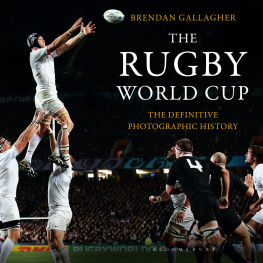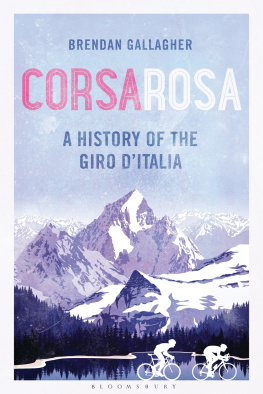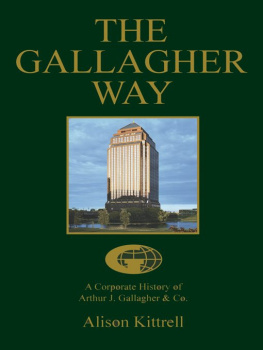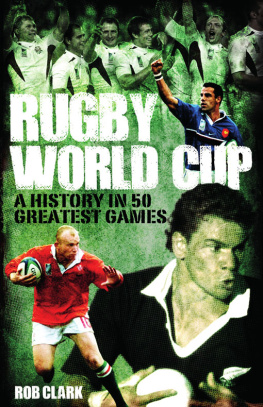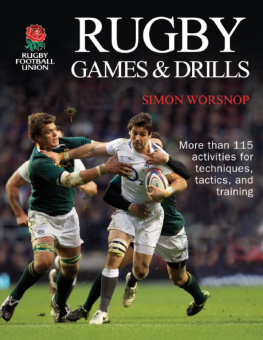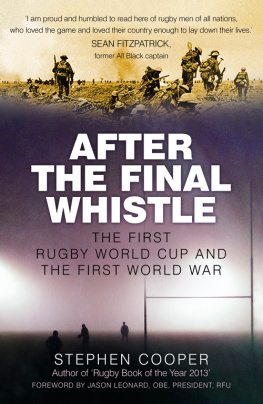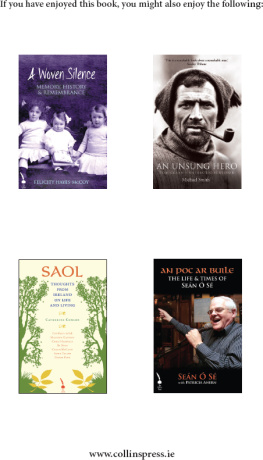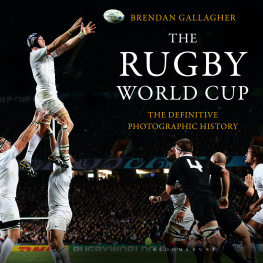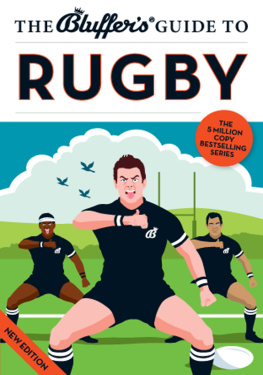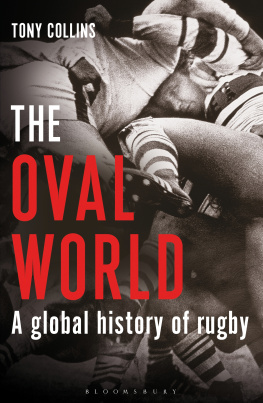


This electronic edition published in 2015 by Bloomsbury Publishing Plc
BLOOMSBURY SPORT
An imprint of Bloomsbury Publishing Plc
| 50 Bedford Square | 1385 Broadway |
| London | New York |
| WC1B 3DP | NY 10018 |
| UK | USA |
www.bloomsbury.com
Bloomsbury is a registered trademark of Bloomsbury Publishing Plc
First published 2015 Brendan Gallagher 2015
Brendan Gallagher has asserted his right under the Copyright, Designs and Patents Act, 1988, to be identified as Author of this work.
All rights reserved
You may not copy, distribute, transmit, reproduce or otherwise make available this publication (or any part of it) in any form, or by any means (including without limitation electronic, digital, optical, mechanical, photocopying, printing, recording or otherwise), without the prior written permission of the publisher. Any person who does any unauthorised act in relation to this publication may be liable to criminal prosecution and civil claims for damages.
No responsibility for loss caused to any individual or organization acting on or refraining from action as a result of the material in this publication can be accepted by Bloomsbury or the author.
British Library Cataloguing-in-Publication Data A catalogue record for this book is available from the British Library.
ISBN HB: 978-1-4729-1262-6
ePDF: 978-1-4729-1263-3
ePub: 978-1-4729-1264-0
Designed by Austin Taylor
To find out more about our authors and books visit www.bloomsbury.com. Here you will find extracts, author interviews, details of forthcoming events and the option to sign up for our newsletters.

Contents
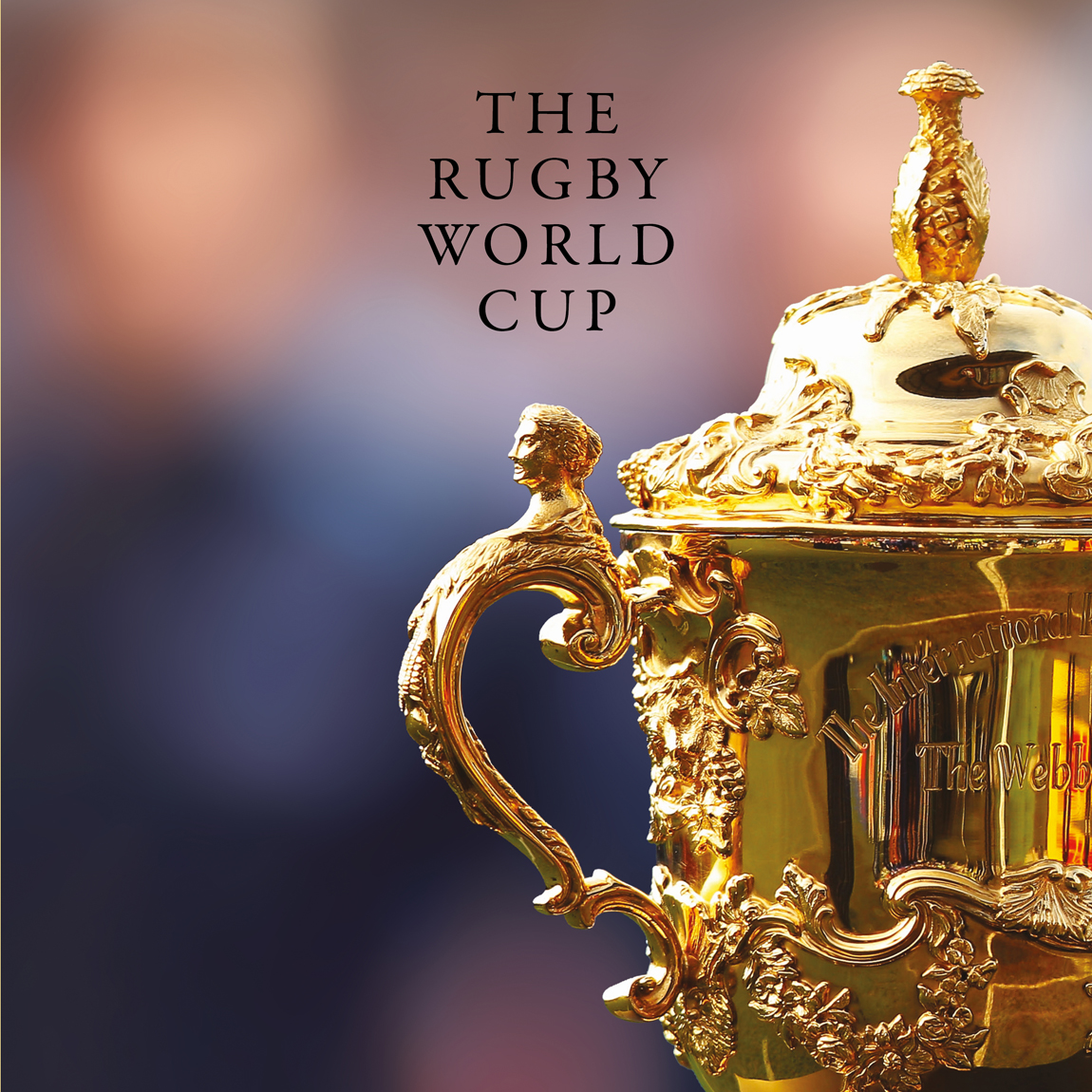

Foreword
IT IS IMPOSSIBLE to play elite sport without wanting to prove yourself the best, which is why we have World Cups.
As a rugby player in the late 70s and early 80s I was extremely proud to represent England and the Lions but agonisingly the inaugural Rugby World Cup in 1987 came just a few years too late for me. I used to look around a little enviously at football, cricket, rugby league, basketball and hockey, which had their own World Cups while every other sport boasted its own Everest at the Olympics every four years. But not Rugby Union.
It was a yawning gap in Rugby Unions make-up. One year, 1981, I was lucky enough to be a member of the Barbarians squad that won the Hong Kong Sevens, which had quickly emerged as a wonderful, almost riotous, celebration of the global game that hinted massively at what might be if Rugby Union could only shake off its old entrenched attitudes.
Thanks to a number of visionaries, who recognised rugby unions sporting and commercial needs, that gap was eventually filled in New Zealand in 1987. It started modestly but from that small acorn a mighty oak has grown. Rugby World Cup is now a phenomenal sporting occasion, the commercial powerhouse of the game and a vital four yearly staging post in rugbys evolution.
This book captures and records that ongoing journey pictorially. The rugby and the characters; the blood, sweat and beers; the courage and humour; the picturesque rural grounds enjoying their day in the limelight and the great stadia of the modern sporting world filled to overflowing. For many players a World Cup is where they tearfully say farewell to the sport they love while for others, such as Jonah Lomu, it is the occasion when they joyously announce themselves. World Cups are an emotional roller-coaster.
Rugby World Cups are not easy to win. No team has yet won back-to-back tournaments. New Zealand needed six attempts after 1987 before they won again in 2011 and our victory with England in 2003 only came after the painful lessons of 1999 and a massive concerted effort to become the number one team in the world in between times.
When you are present at a World Cup your primary focus must be the rugby itself, and your teams performance, but you cant help but get caught up in the tournament itself. Supporters from all countries make their presence known and happily rugbys special brotherhood ensures that the vibe is always friendly and good-humoured.
In the week before the 2003 Final I had no hesitation in encouraging the England squad to relax and chill in the cafes and restaurants around our Manly Hotel, to mix with the fans, and feed off their passion and energy. I was constantly amazed at the sheer number of travelling England fans by the way the sea of white flags and shirts as we ran out to warm up against Australia took my breath away and still brings a lump to my throat.
Having lived in Australia for six years I loved the way that great sporting nation got behind the 2003 World Cup, especially the smaller teams, and contrary to what some people think I also relished the banter shall we call it with the local media.
We were quickly dubbed Dads Army which made me smile because I knew for a certain fact that physically England would outlast any team in the tournament. Is that all youve got? read one of the headlines after our pretty convincing pool victory over South Africa which was the moment I knew for sure we had the Aussies rattled. It was all good fun though and after the final the Aussie press were generous in their praise as was Eddie Jones and his Australia team.
Rugby World Cups can transcend the sport itself. The ultimate expression of that is clearly South Africa 1995 but even in 2003 it was an extraordinary moment when 750,000 people packed into central London for our victory parade. There was a massive feeling of communal unity. November 22nd 2003 is a day, one way or another, that we can all share for the rest of our lives and the only event that comes close in that respect is London 2012.
Ive never tired of hearing all the stories of where various England fans watched that 2003 final around the globe and how they spent the weekend celebrating. It sounds like we missed quite a party although I can assure you it was pretty lively in Sydney as well
So enjoy this book, not only for the wonderful images and memories laid out in front of you but for the personal memories and recollections I know it will also inspire.
Clive Woodward
MAY 2015
Origins of the Rugby World Cup
The Rugby World Cup has become such a part of the global sporting landscape, ranking third only to the Olympics and the Football World Cup in terms of viewing figures and commercial revenue, that its belated and seemingly rather random birth as recently as 1987 seems mystifying. If it was such a great idea, and manifestly ticks so many boxes, why was rugby union the last major team sport on the planet to organise a world championship?

